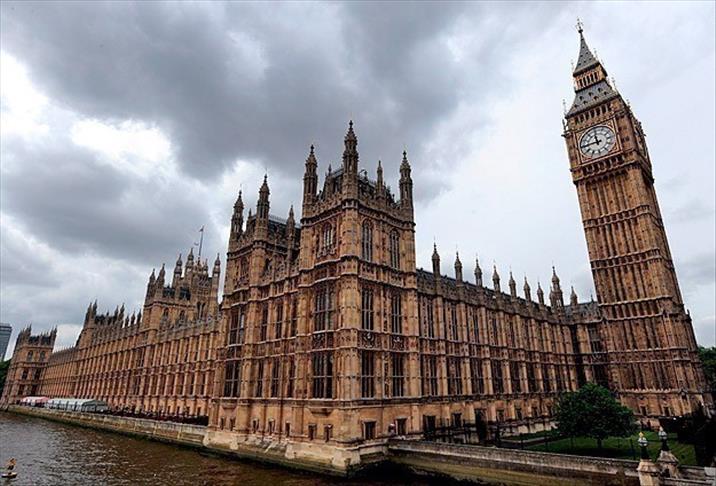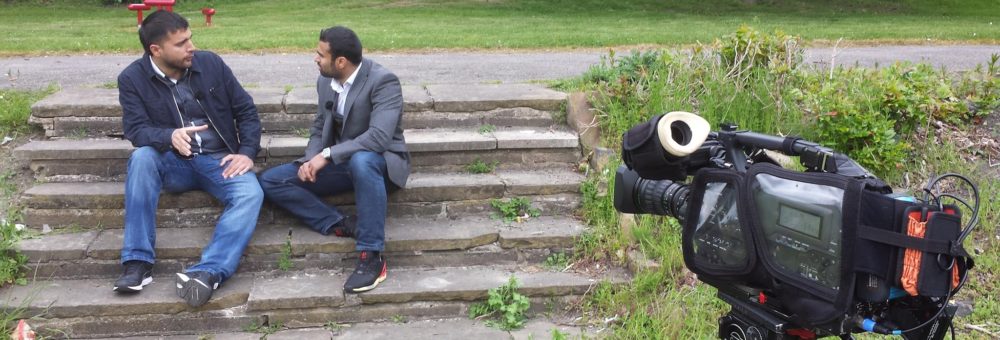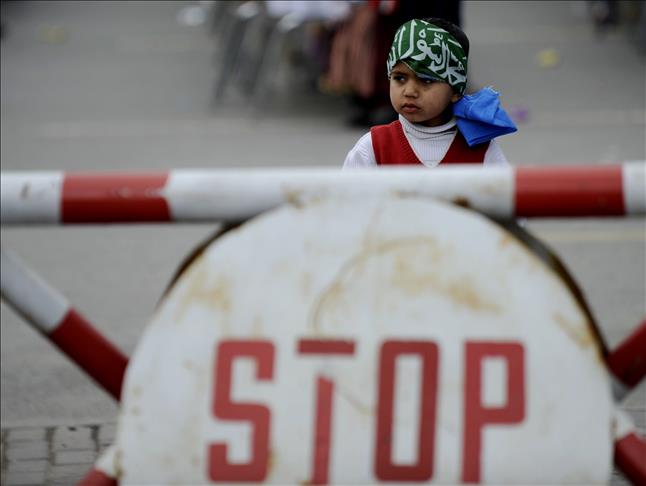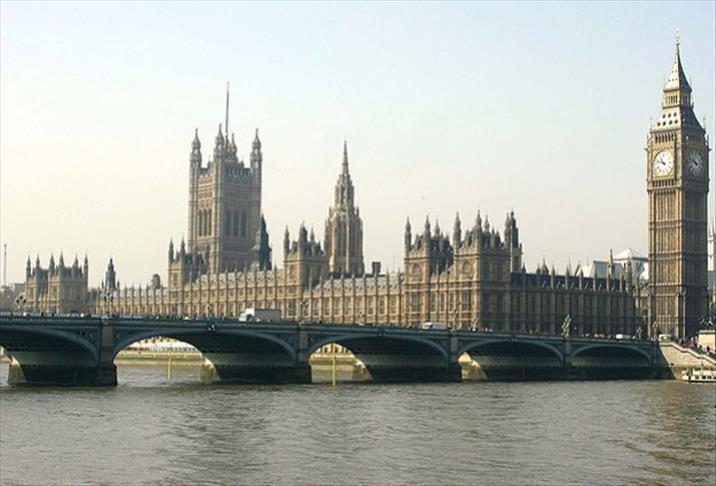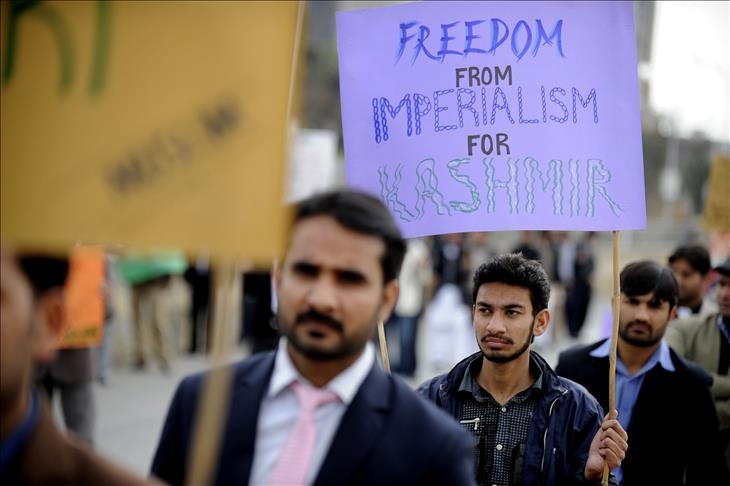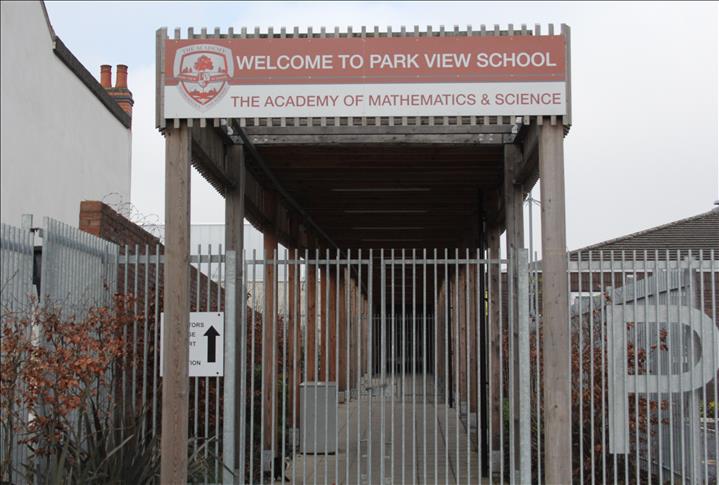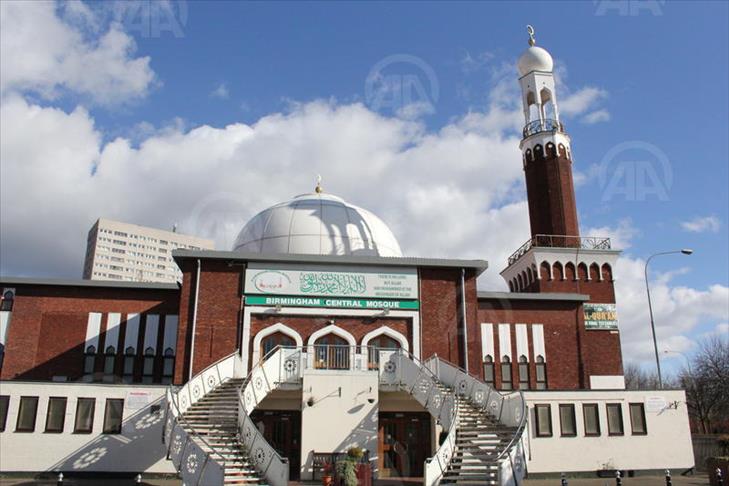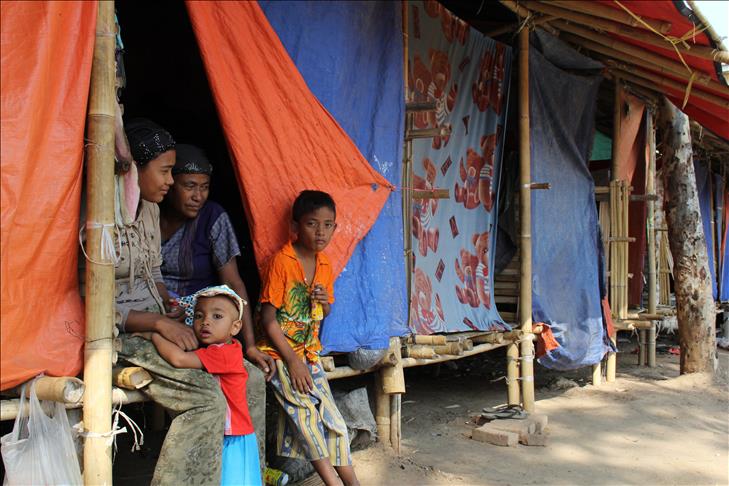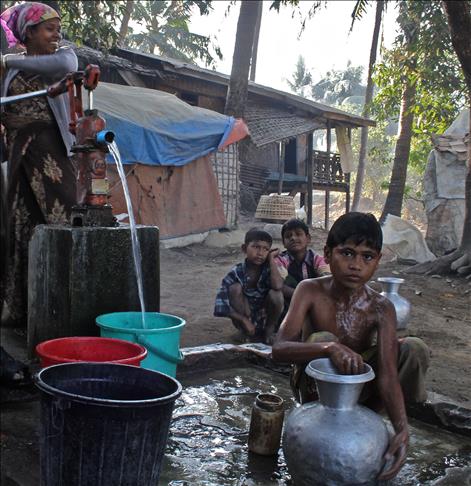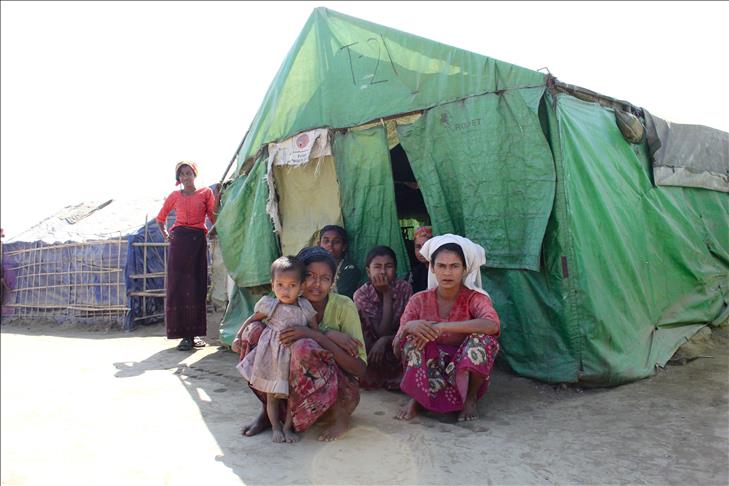A so-called ‘Islamist’ school plot, government leaks, off-the-record briefings, a media scramble and a government-ordered investigation of 25 schools has gripped the U.K.’s second city Birmingham in the last month.
An anonymous letter alleging a secret ‘Trojan horse’ plot to take over Muslim majority schools by ‘Islamists’ was sent to Birmingham city council in March. The letter claimed the supposed secret plot by Muslims was to take over school governing bodies and replace head teachers with ones that agreed with a specific Muslim ideology. Muslims make up 22% of the population of Birmingham.
Investigators from educational watchdog Ofsted were sent into the named schools, followed by investigators from the Department of Education (DfE).
However, the narrative and accusations have rarely been challenged by the British press, and have fuelled the language of Islamophobia against the U.K.’s Muslim community, which makes up 4.8 percent of the population.
The schools in question are based in inner-city Muslim majority areas of Birmingham and therefore have a majority Muslim membership. Anadolu Agency has gained exclusive evidence about the investigations prompted by the letter, which is now believed to be fake.
The Department of Education’s (DfE) response has alarmed many, including West Midlands police. The police called the government’s assignment of a former head of counter-terrorism, Peter Clarke, to the investigation a “desperately unfortunate appointment”.
“Peter Clarke has many qualities but people will inevitably draw unwarranted conclusions from his former role as National Co-ordinator for Counter Terrorism,” said Chief Constable Chris Sims.
A list of DfE investigators passed to AA revealed that one of the leading inspectors sent into investigate the schools, Isthiaq Hussain, was a former member of the controversial Quilliam foundation. The organization brands itself as a counter-extremism think tank and is run by former members of Hizb ul-Tahrir; a group working to establish an Islamic state. However, Quilliam has been criticized by much of the British Muslim community for feeding anti-Muslim prejudice by marginalizing other Muslim groups. A 2010 list of groups with terrorist ideologies, drawn up by the Quilliam foundation, included East London Mosque, the Muslim Council of Britain, and a group that worked with the police to improve community relations, the Muslim Safety Forum. The move was seen as an attempt to malign Muslim groups and individuals. Ishtiaq Hussain was with the controversial think tank until 2009 and now works for the Department of Education. The DfE did not wish to comment on Hussain’s involvement in the investigation or his connection with the Quilliam foundation.
AA sources at one of the investigated schools said the investigation was “very aggressive” and they believed “the outcome has already been decided.”
“They are asking girls if they are forced to wear the headscarf and if we force them to sit separately to boys,” a source at one of the schools said.
“They asked children how they felt that their school was now inadequate?” a teacher at Park View School told AA. “They asked teachers if they were homophobic. All the questions were very leading and with a clear agenda behind them,” he added.
Roger King, the National Union of Teachers executive member for Birmingham, has said that he has recieved complaints from NUT members whose schools were been investigated that inspectors had asked inappropriate questions, the Guardian reported.
One of the schools in question, Park View, was rated outstanding by Ofsted in 2012. Chief Inspector Sir Michael Wilshaw said he had had seen “remarkable improvements in outcomes for some of the city’s most deprived young people.”
He said the head Lindsey Clark had shown “inspirational leadership” and “Like all great heads, Clark has put her heart and soul into the school, and the pride and respect of the pupils shines through in everything they do.”
“I reflected on the moral purpose at the heart of schools such as Park View in my speech to the Association of School and College Leaders conference the same day,” he added.
Ofsted investigators have reportedly told school staff that it will now be downgraded to inadequate following the allegations.
There are currently three separate investigations taking place, by Ofsted, DfE, and Birmingham city council. All this based on a letter that Birmingham city council’s head said was not genuine. Mark Rogers told website Chamberline files, “The letter that sparked all this off is almost certainly spurious. ”
“I think the letter reflects some concerns and potential issues in our communities. I don’t think it is a narrative of historical fact,” he said. “I don’t believe there is a conspiracy. Conspiracy is such a damaging and loaded word. Easy to use, and difficult to prove.”
The DfE report was leaked to the Telegraph and with no apparent mention of the so-called Islamist plot; the media reports discussed Muslim conservatism.
In an article in the Times on 13 April they reported a DfE official saying, “religious conservatism is getting in the way of learning and a balanced curriculum”.
“Extreme religious conservatism often acts as an entry to later problems,” a DfE source said. “A child who is brought up, age eight, nine, 10, believing that you should segregate the sexes and hand out Islamic textbooks is more likely to be radicalized in later life.”
The DfE report was leaked to Andrew Gilligan from the Telegraph. A journalist on record for denying there was an anti-Muslim backlash following the public murder of a soldier in London in 2013, he has consistently targeted the first elected Muslim Mayor of Tower Hamlets, and says he is opposed to what he calls “Islamism.” The DfE refused to comment on the leaks that are attributed to their department.
The Park View Education Trust said in a statement “We do not know where the ‘leaks’ and ‘briefings’ around these inspections are coming from. However, the fact that they are being attributed to Ofsted (as well as the Department for Education) should be as much a cause for concern for Mr Wilshaw as it is for us, The Park View Education Trust said in a statement. “The credibility of both Ofsted and its inspections is seriously undermined by the suggestion that the agency may be colluding with the media and breaching confidentiality. This would constitute a serious breach of protocol.”
AA sources at the school have called the investigation a “witch hunt” and the term was also used in an online petition asking Michael Gove to ‘stop the racist witch hunt in Birmingham schools’ which has reached more than 1500 signatures.
Observers have felt that Gove’s response to the allegation has owed more to his personal, ideological persuasions about Islam than to upholding standards in education. In 2006 Gove wrote a book entitled Celsius 7/7 in which he argued that Europe should do more to tackle ‘Islamism’. Arun Kundani, author of ‘The Muslims are coming! Islamophobia, extremism and the domestic war on terror’, told AA Gove’s “cranky 2006 book Celsius 7/7 recommended Britain carry out assassinations of terrorist suspects to send “a vital signal of resolution”, and said a “temporary curtailment of liberties” would be needed to prevent “Islamism” from destroying Western civilization.”
“Someone with those views cannot be trusted to take a balanced approach to the allegations of a “Muslim takeover” of schools in Birmingham,” Kundani told AA.
William Dalrymple a writer and historian launched a much more scathing attack on Gove when the book was published.
He criticized Gove for having a lack of knowledge and experience in the subject, “Gove has never lived in the Middle East, indeed has barely set foot in a Muslim country. He has little knowledge of Islamic history, theology or culture,” Dalrymple wrote.
He accused the Education Secretary of being “ill-informed” and writing “to fit pre-existing prejudices.”
“Gove’s book is a confused epic of simplistic incomprehension, riddled with more factual errors and misconceptions than any other text I have come across in two decades of reviewing books on this subject,” writes Dalrymple.
Speaking with AA on Michael Gove and the investigation, Dalymple said, “He’s an out and out Islamophobe whose ignorance about the religion is matched only by his hostility.”
In 2002 Michael Gove was the founding chairman of the centre-right conservative think-tank Policy Exchange. In 2007 the organization published a report entitled ‘The Hijacking of British Islam: How extremist literature is subverting mosques in the UK, the report claimed that 26 out of 100 mosques were found to be selling extremist literature. However, a BBC newsnight report found that some of the receipts used to prove that the books were purchased from mosques had been forged.
Gove is also a founder member of the Henry Jackson Society a controversial think-tank that Muslim organizations have accused of spreading anti-Muslim bigotry. The think tank’s associate director Douglas Murray recently wrote about how the rise in Muslim birthrate in the UK was a negative thing. MPs have resigned from the Henry Jackson society after Islamophobic and xenophobic outbursts of Douglas Murray and Alan Mendoza. In 2013 Murray said that Britain had become a foreign country and that white Britons were a minority.
Department of Education employees have gone onto work for the Henry Jackson Society. In 2012 Emily Dyer joined the Henry Jackson Society leaving the DfE where she worked Higher Executive Officer for the Preventing Extremism Unit, where she wrote several papers on extremism within educational settings. Before working at the DfE she worked at Policy Exchange where Gove was a founding chairman. In February this year the UK press reported that sources close to close to liberal Democrats schools minister, David Laws accused Gove of a “blatant” attempt to politicize Ofsted after sacking the watchdog’s chairman, Baroness Morgan, the Labour peer. The source said: “David is absolutely furious at the blatant attempts by the Tories to politicize Ofsted.”
It is not only Gove’s connections with Policy Exchange and the Henry Jackson society that has raised concerns, but the choice of advisors to the DfE on the issue of the investigation into the schools has also raised concerns.
On 11 April Maryam Namazie tweeted, “Met with Department for Education advisor about Islamist school in Birmingham and tackling Islamism in schools. No faith schools the answer”. Namazie is the co-founder of the council of Ex-Muslims, which opposes Islam and Muslims.
Gove’s office refused to comment on why Namazie, an atheist and political campaigner against Muslim organizations, was consulted on an issue of school standards.
Whilst media attentions has been focused on the so-called plot, the fact that 72 percent of the schools’ children are on free school meals in a school with a 75 percent pass rate, one of the highest in the city, has been ignored. “There has been absolutely no evidence at all of extremism,” a teacher at the school told AA. “The decision has been made before the inspection. They will remove the governing body, this is a witch hunt,” said one of the schools governors speaking on the condition of anonymity.
The Ofsted report is due out next month, but in the meantime the school has been receiving racist hate mail.
“How can this even be allowed to happen in this day and age, WE ARE ENGLAND! If people want to go to school run by Muslims perhaps they should move to a Muslim country. Oh my god close this school and deport you all!” said one email.
On the day the story broke in the media, one school received a phone call asking the school if they wanted to receive a delivery of bacon sandwiches. The school serves halal meals to 90 percent Muslim students that attend it.
AA contacted the Department of Education but did not receive a response to the specific questions asked in relation to the investigation and links of inspectors and advisors. Instead AA was presented with the following statement attributed to a DfE spokesperson: “The allegations made in relation to some schools in Birmingham are very serious and we are investigating all evidence put to us in conjunction with Ofsted, Birmingham City Council and the police. It is absolutely vital these investigations are carried out impartially, without pre-judgement. It would be inappropriate to comment further at this stage.”
The findings of the investigation are expected to be published next month, but for many the damage has already been done with the leaks in the British press.
One parent told AA, “No one cared when the school was underperforming, now our kids are doing well they want to shut us down. Everyone in the country thinks that we’re some sort of extremists, we’re not, we just want our kids to have the same chances as everybody else.”
Read the original article published in Anadolu Agency on 25 April 2014
